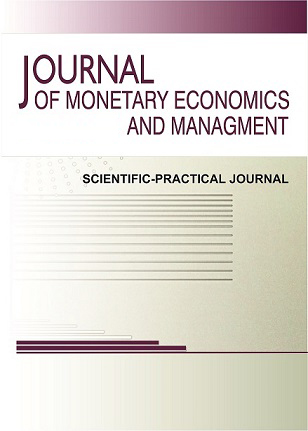employee
The article proposes a concept of compliance policy in an educational institution of higher education for the responsible use of generative artificial intelligence technologies by both students and teachers. The features of neural network tools (ChatGPT, YaGPT, etc.) of generative artificial intelligence (GII), allowing to improve the results of the educational process, are described. A preliminary study has been conducted to identify the risks of unregulated use of neural networks that cause ethical problems in education. The key issues of compliance with ethical and reputational standards in education are outlined: rules of academic integrity in the use of GII); transparency in communications and reporting; copyright (anti-plagiarism); internal regulations; responsibility for results. The experience of ethical use of AI and GPT technologies is analyzed. Based on the existing international experience in implementing ethical principles of regulated use of AI in education, a regulation for the use of AI has been developed based on the methodology of reputational compliance. The author considers the creation of an atmosphere of compliance, i.e. compliance by participants in the educational process with the rules of procedure in communications with the GII as the goal of implementing the concept of compliance policy in the context of the conducted research.
politics, neural networks, generative artificial intelligence (GAI), compliance, principles, ethics, violations, regulations, education
1. Iskusstvennyy intellekt i vysshee obrazovanie: vozmozhnosti, praktiki i buduschee: Issledovanie Yandeks Obrazovaniya i VShE. [Elektronnyy resurs]. – URL:https://education.yandex.ru/aihighreport (data obrascheniya:05.02.2025).
2. Skrytye zatraty na resheniya dlya obespecheniya akademicheskoy chestnosti, prednaznachennye tol'ko dlya obnaruzheniya// Izbrannye stat'i [Elektronnyy resurs]. – URL: https://packback.co/blog/(data obrascheniya: 05.02.2025).
3. Zayavlenie Britanskih universitetov gruppy Russel ob ispol'zovanii generativnogo II v obrazovanii. [Elektronnyy resurs]. – URL: https://russellgroup.ac.uk/news/new-principles-on-use-of-ai-in-education/(data obrascheniya: 05.02.2025).
4. Deklaraciya eticheskih principov sozdaniya i ispol'zovaniya sistem iskusstvennogo intellekta v NIU VShE. [Elektronnyy resurs]. – URL: https://www.hse.ru/news/expertise/937067191.html(data obrascheniya: 09.02.2025).
5. Kompleksnaya sistema komplaens/Nacional'naya associaciya komplaens, Rossiya (NAK). – URL: https://compliance.su/services/komplaens/ (data obrascheniya: 19.02.2025).
6. Matafonova A.S., Orlova M.G. Reputacionnaya osnova kommunikacionnoy politiki kompanii/ V sbornike: Sovremennye problemy i perspektivy razvitiya turizma i sfery uslug v usloviyah globalizacii //Sbornik statey I Vserossiyskoy nauchno-prakticheskoy konferencii. Pod obschey redakciey I.F. Zhukovskoy. 2018. – S. 216-219.
7. Orlova M.G. Formirovanie reputacionnoy komplaentnosti studentov - osnova loyal'nosti k universitetu/ V sbornike: Rezervy sovershenstvovaniya professional'nogo obrazovaniya v VUZE//Materialy mezhdunarodnoy nauchno-metodicheskoy konferencii. Sibirskiy gosudarstvennyy universitet putey soobscheniya. 2018. – S. 117-121.
8. Opros dlya uchastnikov konferencii E-DIGITAL SIBERIA’2025.– URL: https://forms.yandex.ru/admin/67c5ac40505690afedfe325a/answers?view=stats (data obrascheniya: 29.04.2025).
9. Gerli D. K., Dagli A. L. Priotkryt' zavesu tayny nad moral'nymi rassuzhdeniyami i razvitiem eticheskogo liderstva dlya rukovoditeley shkol K-12 // Zhurnal issledovaniy v oblasti liderskogo obrazovaniya, 16 (3), 243–274. — 2024. — №. 16(3). — S. 243–274. – URL: https://doi.org/10.1177/1942775120921213 (data obrascheniya: 14.03.2025).
10. Cze A. L. H., Kamrozzaman N. A. Problemy, s kotorymi stalkivayutsya studenty vysshih uchebnyh zavedeniy pri ispol'zovanii iskusstvennogo intellekta (II) protiv ih uchebnogo opyta // Otkrytyy zhurnal social'nyh nauk. — 2024. — №. 12. — S. 362-387. – URL: DOI:https://doi.org/10.4236/jss.2024.1210025(data obrascheniya:14.03.2025).









